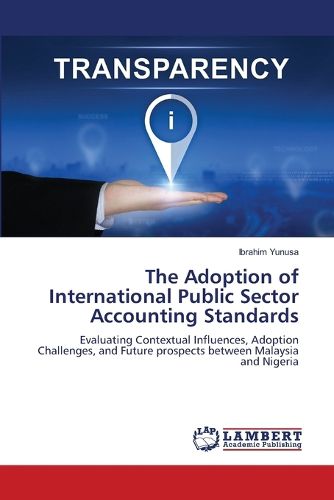Readings Newsletter
Become a Readings Member to make your shopping experience even easier.
Sign in or sign up for free!
You’re not far away from qualifying for FREE standard shipping within Australia
You’ve qualified for FREE standard shipping within Australia
The cart is loading…






This paper analyzes the implementation of International Public Sector Accounting Standards (IPSAS) in Nigeria and Malaysia, emphasizing their unique experiences shaped by socio-economic, political, and historical factors. IPSAS seeks to improve transparency, accountability, and comparability in financial reporting within the public sector. Nigeria implemented IPSAS in 2014 as part of comprehensive financial management reforms but encountered substantial obstacles, including corruption, insufficient infrastructure, and institutional resistance. In contrast, Malaysia underwent a more seamless transition owing to proactive governance structures and initiatives for public sector transformation. The study employs secondary data from governmental papers and scholarly literature to examine motivations, implementation methods, and outcomes. The findings highlight that country-specific factors substantially influence IPSAS implementation, with Nigeria's challenges differing from Malaysia's more effective strategy. This comparative analysis offers essential insights for policymakers and international organizations regarding effective tactics and contextual factors for the adoption of global.
$9.00 standard shipping within Australia
FREE standard shipping within Australia for orders over $100.00
Express & International shipping calculated at checkout
This paper analyzes the implementation of International Public Sector Accounting Standards (IPSAS) in Nigeria and Malaysia, emphasizing their unique experiences shaped by socio-economic, political, and historical factors. IPSAS seeks to improve transparency, accountability, and comparability in financial reporting within the public sector. Nigeria implemented IPSAS in 2014 as part of comprehensive financial management reforms but encountered substantial obstacles, including corruption, insufficient infrastructure, and institutional resistance. In contrast, Malaysia underwent a more seamless transition owing to proactive governance structures and initiatives for public sector transformation. The study employs secondary data from governmental papers and scholarly literature to examine motivations, implementation methods, and outcomes. The findings highlight that country-specific factors substantially influence IPSAS implementation, with Nigeria's challenges differing from Malaysia's more effective strategy. This comparative analysis offers essential insights for policymakers and international organizations regarding effective tactics and contextual factors for the adoption of global.